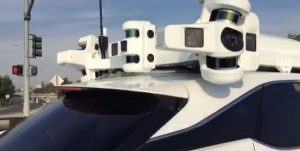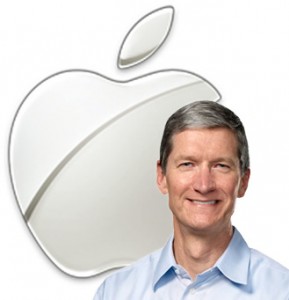Donald Clark Plan B: This is why the idea that AI will just augment jobs, never replace them, is a lie!
— Read on donaldclarkplanb.blogspot.com/2024/02/this-is-why-idea-that-ai-will-just.html
Siri gets smarter
Apple unveiled its upcoming iOS 12, the update for iPads and iPhones coming this fall, and what I found most interesting was some long overdue upgrades in Siri’s capabilities. You’ve probably noticed how when you get in your car, a message is often displayed on the lock screen anticipating where you’re going and telling you how long it’ll take to get there. Apple is now adding the ability for Siri to learn how you’re using apps, and to use that information to make suggestions. As Apple put it:
Siri can now intelligently pair your daily routines with third-party apps to suggest convenient shortcuts right when you need them.
You can also set up shortcuts, teaching Siri to perform a number of actions when a simple command is provided. When you’re heading home from work, a single command can adjust your home thermostat, tell you how long it’ll take to drive there, text your significant other that you’re on the way, and start playing your favorite podcast. There are other interesting examples in this article at TechCrunch, check it out if you’re curious.
iOS 12 should be available this fall, and will work on most devices (going all the way back to the iPhone 5S!)
The problem with self-driving cars
 Lately I’ve been pretty optimistic about self-driving cars…the technology seems to be maturing so quickly, I’ve been expecting them to become commonplace in a matter of years, not decades. A recent photo from Apple has me questioning that – and it’s not a problem unique to Apple, all self-driving automotive technology currently has this limitation.
Lately I’ve been pretty optimistic about self-driving cars…the technology seems to be maturing so quickly, I’ve been expecting them to become commonplace in a matter of years, not decades. A recent photo from Apple has me questioning that – and it’s not a problem unique to Apple, all self-driving automotive technology currently has this limitation.
Take a look at that picture, what do you see? An incredibly complex array of optical-based sensors. Some are lasers, some are cameras. All self-driving cars use something similar, at least based on what’s publicly known right now (GPS is also used, but it just provides approximate location, with no insight into obstacles on the road).
So. Optical sensors. What happens when the lenses get dirty? I used to live in CA so sure, out there they can stay clean for months. Or, as Apple recently announced, the technology can be improved to deal with some raindrops on the lens. But drivers in most of the country have an honest four seasons to deal with, and of course the worst is areas with snow. Not just for the snow that can accumulate on the lenses, but when that snow melts, the dirty airborne mist kicked up by other cars coats your own in a deep layer of muck.
The automotive industry has developed washers for headlights to partially address this problem, but those are imperfect…but maybe good enough for this application? Ideally, I think a true wiper-based solution is needed for each lens.
How will this be solved? I really don’t know…maybe improving the technology used to clean some car headlights. Until then, I do expect self-driving cars to become commonplace, but only in mild-climate urban areas.
A new era of corporate responsibility?
 For a while now, Apple has been working to improve worker conditions, and is using more and more ‘green’ energy (they plan to eventually get 100% of their power that way). At the recent shareholder meeting, the NCPPR challenged CEO Tim Cook on the costs of this strategy, wanting Apple to focus more on Return on Investment (ROI) and not pursue issues that don’t boost that. Their proposal was soundly rejected by 97% of shareholders, and Cook displayed unusual emotion in his response to the spoken question at the shareholder meeting, telling the NCPPR rep, “If you want me to do things only for ROI reasons, you should get out of this stock.” Way to go Tim! Cook is clearly making decisions based on human ethics and morals, and it’s great to see a company as large as Apple to do this – and to be supported by its shareholders! I hope this encourages other large corporations to take a stand against ROI and start doing what’s morally right.
For a while now, Apple has been working to improve worker conditions, and is using more and more ‘green’ energy (they plan to eventually get 100% of their power that way). At the recent shareholder meeting, the NCPPR challenged CEO Tim Cook on the costs of this strategy, wanting Apple to focus more on Return on Investment (ROI) and not pursue issues that don’t boost that. Their proposal was soundly rejected by 97% of shareholders, and Cook displayed unusual emotion in his response to the spoken question at the shareholder meeting, telling the NCPPR rep, “If you want me to do things only for ROI reasons, you should get out of this stock.” Way to go Tim! Cook is clearly making decisions based on human ethics and morals, and it’s great to see a company as large as Apple to do this – and to be supported by its shareholders! I hope this encourages other large corporations to take a stand against ROI and start doing what’s morally right.
Cook also gave an example of doing things for other than ROI, when he said, “When we work on making our devices accessible by the blind,” he said, “I don’t consider the bloody ROI.”
For a long time, I’d concluded that large corporations are a form of artificial intelligence…they make decisions which a single person would not normally make, and their profit-focused intelligence is again, not a very human one. Tim Cook’s recent actions give me hope that this corporate AI may not be all-conquering, that there may still be exceptions to this. Resisting that AI clearly requires a strong leader like Tim Cook though, and that’s the challenge for any company.
You can read more about this over at MacObserver.
Sherpa – predictive AI for your iPhone
 Sherpa is a new, predictive artificial intelligence that will soon be available for iPhones (if you want to sign up, follow this link). It’s raised a bit over $1M seed funding so far, and promises big potential by making location a key part of its services. For example, based on your calendar and current traffic, it would know that you’ll be late for an appointment and offer options for notifying the meeting organizer, and even alternate routes to take. Ideally you’d be able to avoid that situation, as it would notify you when you need to leave to make it to your meeting on time. Weather forecasts will be based not only on your current location, but where it knows you’re going. It’s a background app, pushing information to you as needed…pretty cool stuff if they can pull it off.
Sherpa is a new, predictive artificial intelligence that will soon be available for iPhones (if you want to sign up, follow this link). It’s raised a bit over $1M seed funding so far, and promises big potential by making location a key part of its services. For example, based on your calendar and current traffic, it would know that you’ll be late for an appointment and offer options for notifying the meeting organizer, and even alternate routes to take. Ideally you’d be able to avoid that situation, as it would notify you when you need to leave to make it to your meeting on time. Weather forecasts will be based not only on your current location, but where it knows you’re going. It’s a background app, pushing information to you as needed…pretty cool stuff if they can pull it off.


